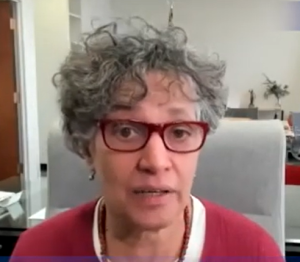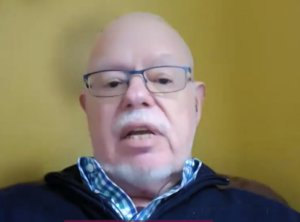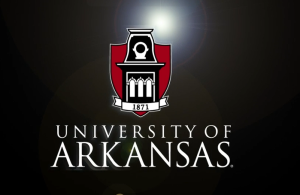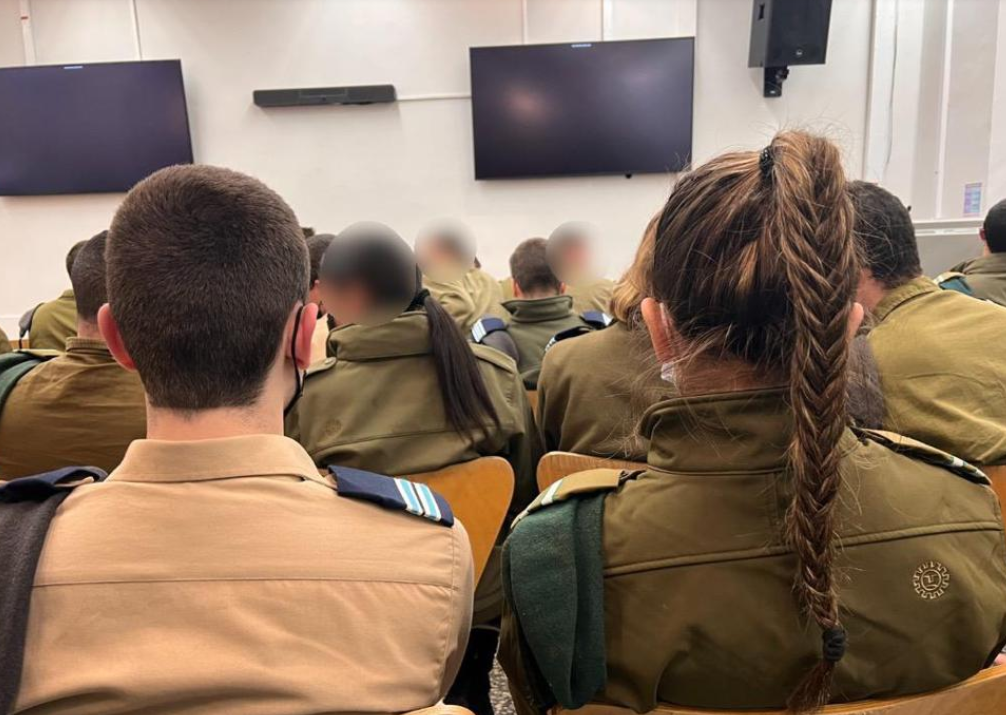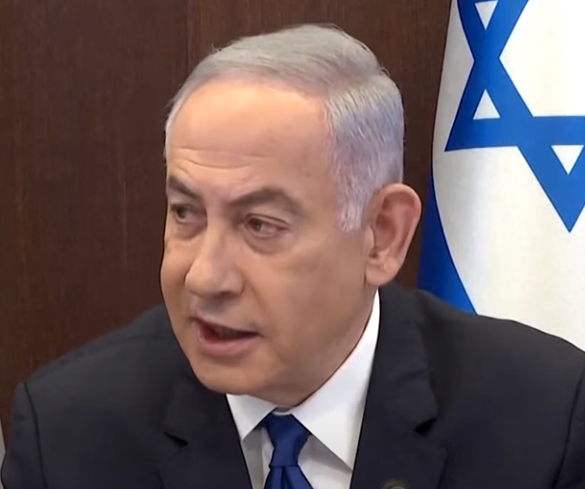17 August 2025
The US Administration has strong-armed MIT, Harvard and other elite universities into increasing their links with Israeli institutions. But as +972 reports, faculty and students however are hostile to these partnerships as illustrated by their near total rejection of Israel Studies programmes.
After crushing dissent, U.S. universities are deepening ties with Israeli academia
Israeli universities regularly collaborate with the military, which has destroyed all academic life in Gaza. That’s done nothing to slow U.S.-Israeli partnerships.
By Dikla Taylor-Sheinman and Georgia Gee August 11, 2025
At the end of July, Harvard signaled its willingness to spend as much as half a billion dollars to settle accusations of antisemitism brought by the Trump administration. While the scandal — and the staggering sum — has drawn widespread attention, a previous concession slipped under the radar: in a failed bid to placate the administration earlier this year, Harvard agreed to establish a formal partnership with an Israeli university.
On July 28, Harvard announced two new initiatives with Israeli institutions: a study abroad program with Ben-Gurion University in the Negev and a postdoctoral fellowship for Israeli scientists at Harvard Medical School. The move comes amid a wave of U.S. universities launching or expanding partnerships with their Israeli counterparts in recent months.
In December, the Massachusetts Institute of Technology (MIT) launched a program that will allow scholars at Israel’s nine public, state-accredited universities to come to MIT for collaboration and training. In March, Clemson College in South Carolina announced a partnership with Hebrew University and Sapir College to bring new agricultural technologies to Israel’s western Negev region, and Columbia University committed to expanding its academic initiatives with Tel Aviv University. And in May, the University of Utah signed an “academic cooperation” deal with Ariel University — an Israeli institution located in an illegal West Bank settlement.
Meanwhile, Harvard recently suspended its research partnership with Birzeit University, the largest Palestinian university in the West Bank, and in Gaza, all 12 universities have been destroyed by Israel’s war on the Strip. “We call it scholasticide,” said Dr. Wesam Amer, formerly the dean of the Faculty of Communication and Languages at Gaza University. “It refers to Israel’s systematic and deliberate destruction of education as a tool of domination.”
As U.S. universities deepen ties with Israeli institutions, a new comprehensive Hebrew-language report by New Profile, an Israeli anti-militarization movement, sheds light on the extent to which those institutions are embedded in the country’s military apparatus — with Israel expanding its assault on Gaza and spiraling settler and army violence throughout the West Bank.
The report identifies at least 57 military-academic programs for active-duty soldiers and conscription candidates across numerous universities and estimates that financial cooperation between the Ministry of Defense and academia for soldier study programs from 2019 to 2022 exceeded NIS 269 million (roughly $79 million).
The seven Israeli universities named in the report, including Hebrew University and Tel Aviv University, “are active partners in the ongoing occupation of the West Bank and Israel’s genocide,” Nissi Peli, the report’s author, told +972. “Academia in the United States should set some basic moral standards as a condition for inter-institutional partnerships. At the very least, this should include requiring Israeli academic institutions to end their cooperation with Israel’s military establishment and industry.”
‘No Israeli institution is untouched by the occupation’
Israeli universities have long enjoyed a reputation in the West as multicultural, pluralistic institutions with robust academic freedom. As Maya Wind, a scholar of Israeli militarism and author of the 2024 book “Towers of Ivory and Steel” notes, this view has been echoed by groups like Freedom House and the Varieties of Democracy Institute, as well as universities themselves: Columbia University describes campus life at Tel Aviv University, with whom it offers a dual degree program, as “dynamic and pluralistic.”
Yet according to Wind, the reality is much more troubling. Israeli universities “are in fact deeply implicated in Israeli settler colonialism — and now in genocide,” she told +972.
This western consensus is one Palestinians have long questioned. Indeed, the Palestinian Campaign for the Academic and Cultural Boycott of Israel (PACBI) issued its call to boycott Israeli universities back in 2004, a full year before the Boycott, Divestment and Sanctions Movement (BDS) was launched. The campaign advanced the claim that Israeli academic institutions and the majority of Israeli intellectuals have either “contributed directly” to sustaining Israel’s systems of oppression or been “complicit through their silence.”
Wind’s book, based on extensive archival and ethnographic research in Israel, only bolsters PACBI’s assessment of Israeli academia. Entire academic disciplines, she argues, “subordinate their knowledge production to the needs of the Israeli state.”
One example is the “Havatzalot” program, housed in Hebrew University’s Department of Islamic and Middle Eastern Studies, which integrates academic study with military intelligence training. Many of its graduates go on to serve in Unit 8200, Israel’s elite surveillance corps. The information they collect is often used to prosecute Palestinians in military courts or coerce collaboration with the Shin Bet, Israel’s internal security agency.
Middle Eastern Studies is hardly the only field where academic expertise is mobilized in service of Israeli state interests, particularly its military campaigns. Israeli universities have also helped construct legal frameworks that reinterpret international humanitarian law to shield the state from accountability.
At Tel Aviv University’s Institute for National Security Studies, academics work closely with security officials to produce legal justifications for Israeli military operations, including arguments that traditional laws of war are ill-suited for Israel’s “war on terror.” One such innovation is the term “third population” — referring to individuals who appear to be civilians but might interfere with military objectives — a category used to erode the legal distinction between combatant and noncombatant, effectively permitting the targeting of Palestinian civilians.
“There’s going to be years of research to understand how the Israeli society carried out a genocide and got away with it for as long as it did,” Wind said. “To understand how we got to this point, it’s not enough to look at the military. You have to look at the kinds of institutions that we don’t tend to look at when we think of state and colonial violence. No institution in Israel is untouched by the occupation, and Israeli universities are no exception.”
The West Bank University
Among Israel’s nine state-recognized universities, one stands out for its egregiously blatant violations of international law. One of the first Israeli academic institutions in the occupied West Bank, Ariel University was established in 1982 as the “Judea and Samaria Academic College,” an outpost of Bar Ilan University. The university is located in the settlement of Ariel, which itself was founded just four years earlier — envisioned by its planners as a secular, urban hub in the heart of the West Bank, close to the Israeli military industries where many of its residents worked.
Ariel University is not just built on occupied Palestinian land, with an explicit mission to “instill a sense of belonging to the State of Israel” and advance Zionist values, according to its president. The institution has also given academic credit to students who volunteer with Hashomer Yosh, a formerly U.S.-sanctioned volunteer youth organization whose settler members have committed violence against Palestinian communities in the West Bank. “I call on everyone to support them, like we do here at Ariel University,” said Mark Zell, an American lawyer and board chairman at Ariel, in a 2020 video to promote the youth group. (A spokesperson from Ariel University said that it has no relationship with Hashomer Yosh and “statements made by private individuals do not represent official university policy.”)
At least eight U.S. universities, including Johns Hopkins and Florida Atlantic University, have established relationships with Ariel. In 2019, according to its nonprofit financial disclosures, Barnard College donated $13,500 directly to Ariel University for a scientific project. And in June, Ariel and the University of Utah signed a five-year memorandum of understanding (MOU) which establishes a framework for joint research projects, student and faculty exchanges and shared academic conferences.
Its announcement, reported first by The Jerusalem Post, came as a shock to some of Utah’s faculty. Marshall Steinbaum, assistant professor of economics, told +972 that they learned about the partnership from the article. “There was no word of it on campus at all,” Steinbaum said. “They think people won’t get organized because it’s the summer, but we will not just stop agitating for the cancellation of the MOU.”
In a press release published after the announcement, the University of Utah Faculty for Justice in Palestine, in which Steinbaum is a member, noted that any academic cooperation between the universities would be a violation of Utah state and U.S. federal laws — which prohibit higher education institutions from taking positions on matters of public controversy or discriminating on the basis of religion or national origin.
“Because Israel and the settlement of Ariel prohibit both Palestinians and many Muslims from entry,” the press release noted, “any ‘academic cooperation’ undertaken with Ariel University is, by definition, unavailable to the University of Utah’s many Muslim and Palestinian students, faculty, and academic personnel.”
The faculty also highlighted the shameful timing of the agreement. “Every single university in Gaza, among which University of Utah graduates were employed, has already been destroyed in that genocide,” the group said. “Those institutions are the ones that could truly benefit from such a partnership” with the university.
In response to questions about the MOU, Rebecca Walsh, director of communications at the University of Utah, told +972 that “this decision does not represent the University of Utah taking a position on the war in Gaza or the Occupied Palestinian Territories more broadly. It’s worth noting that the university, as a state institution, is not allowed to take political positions.”
Walsh sent a link to the University of Utah’s “Global Inventory” of academic activity related to Palestine, which only included a small number of faculty publications, no official partnerships, and a handful of enrolled students from Palestine in recent years. Mark Lewis, Ariel’s spokesperson, told +972 that the MOU with Utah is “strictly academic” and that the university has several partnerships with universities in the United States.
‘Why not deepen relationships with the Palestinian community?’
In December, MIT announced the inauguration of its Kalaniyot programs for visiting Israeli scholars, an academic partnership with Israel’s nine state-recognized universities, which aims to “empower” Israeli scholars to “get involved in collaborative cutting-edge research, deepen academic ties, and showcase the brilliance of the startup nation.” (Since launching at MIT, Kalaniyot’s campus presence has grown; it now counts chapters at Dartmouth University, the University of Pennsylvania, Harvard Medical School, and Columbia University.)
The list of Israeli partner universities includes Ariel, as well as Hebrew University and Ben-Gurion University, which cooperate with the Defense Ministry to allow more soldiers in regular service and military personnel in other positions to pursue their academic studies than any other institution of higher learning, according to New Profile’s report.
The Defense Ministry pays over NIS 32 million ($9 million) to Hebrew University, for example, to host the “Talpiot” program — a military-academic program that trains soldiers for research and development roles in weapons manufacturing. Ben-Gurion University, on the other hand, with whom Harvard now partners, offers an accelerated undergraduate program for fighter pilots that involves close and deep cooperation between the university and the flight school.”
But MIT’s partnership, critics say, goes beyond military ties. Wind argues that such initiatives are part of a broader strategy to use Israeli academia as a tool of “hasbara,” or pro-Israel propaganda — to “attempt to substantiate the Israeli narrative and reframe the facts of apartheid that are very obvious for all to see.” The MIT program, for instance, aims to reflect and “embrace Israel’s diverse demographics” in the selection of its participating scholars, whose presence on a U.S. campus will contribute “to a better understanding of their country.”
As MIT strengthened its relationship with Hebrew University, Israel killed over 1,300 academics who were once associated with universities in Gaza — from presidents to deans, professors, and students.
“I’m in favor of academic collaborations in general, but when Palestinian society is being systematically attacked, why not do the opposite?” said Richard Solomon, a doctoral student and member of the MIT Coalition for Palestine. “Why not deepen relationships with the Palestinian community?”
In response to questions from +972 on its academic collaborations, MIT referenced the Kalaniyot program’s website and the launch of Global MIT At-Risk Fellows Program Palestine in December 2024, a two-year pilot initiative to bring five scholars from Palestine to MIT each semester for training and mentorship by a MIT faculty member.
“The faculty leaders have expressed their support for hosting both programs,” said Sarah McDonell, from the Institute Office of Communications, in an email statement.
Down the street from MIT, Harvard had come under increasing pressure from Republicans and Harvard’s former president, Lawrence Summers, to end its partnership with Birzeit over the student government’s alleged ties to Hamas.
Earlier this year, after agreeing to establish a formal partnership with an unspecified Israeli university as part of its settlement of antisemitism lawsuits, Harvard’s School of Public Health suspended its partnership with Birzeit. The school often collaborated with scholars at Birzeit and offered a summer course in Jordan focused on Palestinian health.
“This is an act of academic boycott of Palestinian universities,” said Amer, who was forced to flee Gaza and is now a visiting researcher at Cambridge University. “They are sending a message that they consider Palestinian students, academics, and institutions as disposable. Their lives are not equal.”
According to Wind, the disparity between Israeli institutions’ close ties with U.S. universities and the marginalization of Palestinian counterparts has had tangible consequences. “The Israeli state has intentionally isolated Palestinian academics,” she told +972. “It destroyed their universities, impoverished their resources, and attempted to prevent them from having exchanges with the rest of the international academic community.”
Smuggling in new partnerships
Less than a month into Israel’s assault on Gaza, following the Hamas attacks of Oct. 7, students across U.S. campuses began mobilizing to protest Israel’s aerial bombardment and demand divestment from companies tied to the occupation and Israel’s military.
Israeli university presidents were quick to counter the effort. The heads of all nine state-recognized Israeli universities sent a joint message to their U.S. counterparts, expressing concern that college campuses had become “breeding grounds for anti-Israel and anti-Semitic sentiments,” which they attributed to a “naive and biased understanding of the conflict.”
Hundreds of Temple, Drexel and UPenn students protest at UPenn’s campus, where professors walked out of classes. Students also set up tents in solidarity with the Columbia University student encampment, April 25, 2024. (Joe Piette/CC BY-NC 2.0 DEED)
Then, in April 2024, the same group of university heads suggested in a separate letter to U.S. university presidents that “extreme situations may require measures beyond the conventional tools available to university administrations,” which could be read as an endorsement of deploying law enforcement against their own students.
Between mid-April and mid-July 2024, more than 3,000 people were arrested or detained on U.S. campuses. Universities also disciplined students internally, banning groups like Students for Justice in Palestine along with Jewish Voice for Peace, issuing suspensions and expulsions, withholding diplomas, and a spate of new rules and tightened restrictions on protest and speech.
The repression is continuing as students prepare to return to campus for the fall semester. At the end of July, Columbia informed nearly 80 students that they face suspensions of up to three years or expulsion for their involvement in campus protests and encampments.
But though such measures have created a chilling effect, they have not extinguished student calls for divestment. Nor have they increased support for Israel on college campuses. Quite the opposite: an extensive report released by the Jewish People Policy Institute this month warns that the academic field of Israel Studies is “increasingly becoming a pariah field” and “at the brink of extinction.”
The report notes that the Israel Institute — the primary organization funding short-term professorships and campus programming in Israel Studies — has significantly scaled back its operations, apparently due to budget constraints. Meanwhile, the 2022 decision by the U.S.-based Middle East Studies Association to boycott Israeli institutions effectively severed its ties with the Association for Israel Studies, whose members are largely affiliated with Israeli universities.
While new collaborations between Israeli and U.S. universities lack widespread buy-in from American faculty and students, Wind argued that framing them as redress for supposed discrimination against Jewish or Israeli students, “is a cynical but very effective way to make sure these partnerships are untouchable.
“At the precise moment when it could not be more clear that there’s overwhelming opposition to [these partnerships] among students, faculty and staff on American campuses, they’re being smuggled in.”

Dikla Taylor-Sheinman is a NIF/Shatil Social Justice Fellow at +972 Magazine. Currently based in Haifa, she spent last year in Amman and the previous six years in Chicago.
Georgia Gee is an investigative journalist covering human rights issues, environmental abuse and surveillance. Her work has appeared in print, podcast and documentaries, including for The Intercept, Foreign Policy and the Organized Crime and Corruption Reporting Project. She was previously the lead investigative researcher for Ronan Farrow at The New Yorker and HBO, and an editor for the Organized Crime and Corruption Reporting Project.




